Audio fiction star Briggon Snow dishes on finding power in his voice & queer community by cruising Craigslist
The 'Bright Sessions' & 'Hit Singles' actor shares how audio fiction helped him unpack past shame around voice.
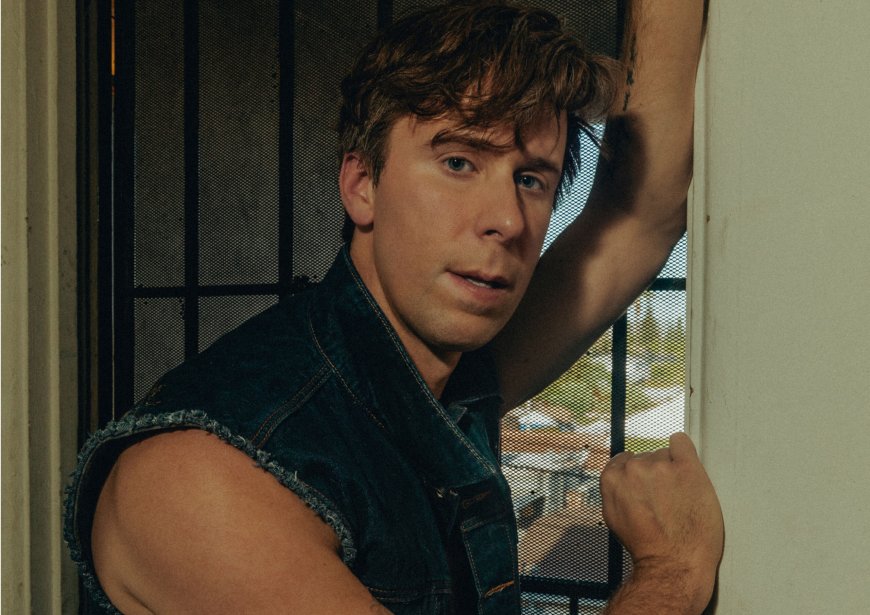
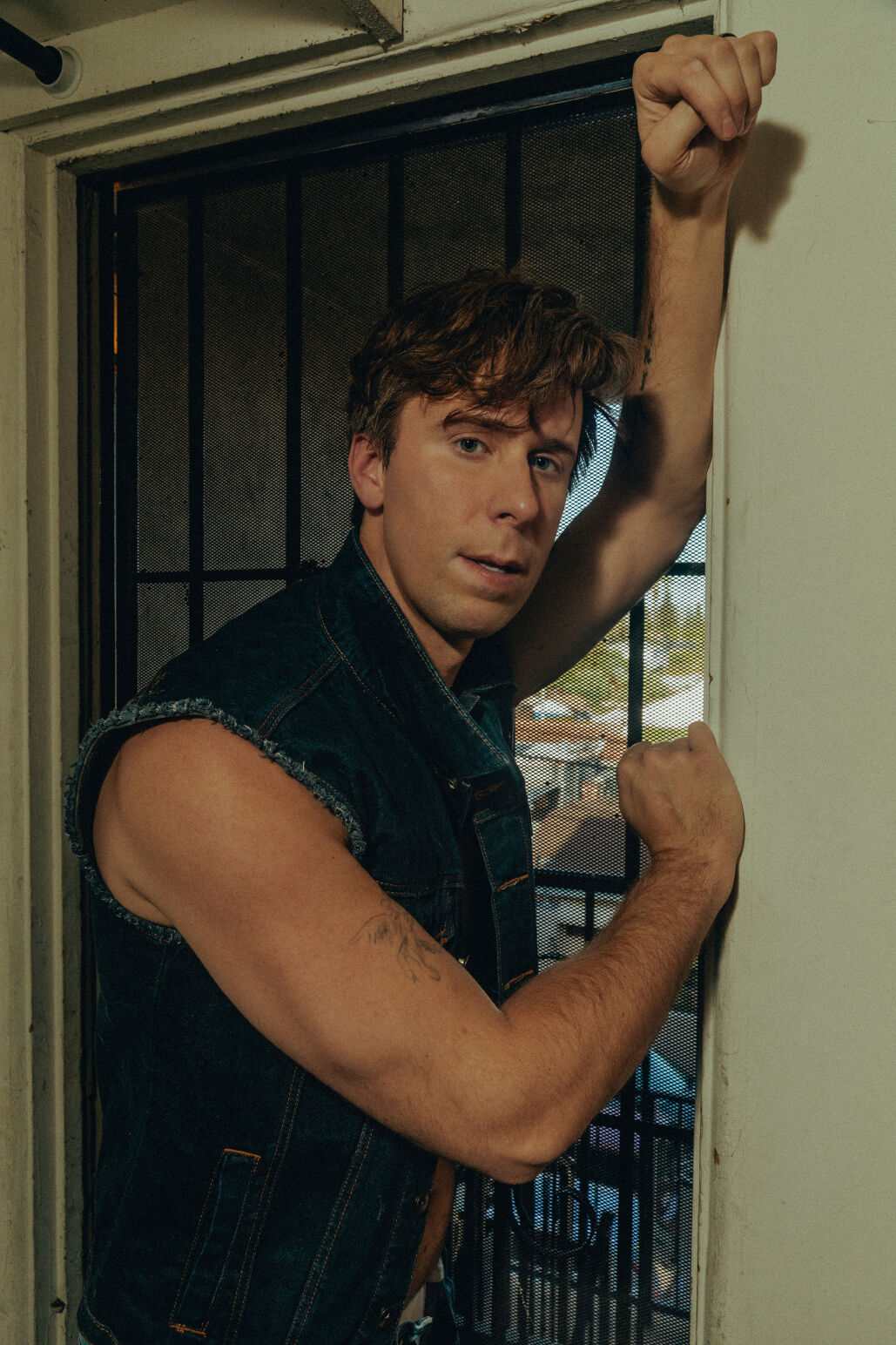
With podcasts and the world of audio fiction bigger than ever, it’s no secret that queer people dominate the medium.
And while we’re just happy to see—or hear, rather—gay people anywhere, there’s something extra special about our prevalence in audio-focused spaces because, for so many of us growing up, we were conditioned to be ashamed of our voices, of sounding “too gay.”
Actor and creator Briggon Snow recalls understanding at a young age that others might judge or assume certain things about him because of his voice. “I spent years trying to make myself sound different: lower, straighter—whatever that’s supposed to mean,” he admits. It took time to shake those fears, to embrace his queerness, and in turn, embrace his voice.
As Snow tells it, it wasn’t until he started working in the audio fiction space that he was finally able to “unpack that old shame.” It all started with The Bright Sessions, the landmark scripted sci-fi podcast that celebrates its 10th anniversary this year. In it, he played Caleb, a teen with a supernatural ability to feel the emotions of others around him, coming to terms with his power and his own identity simultaneously. The breakout character hit close to home for Snow, and kicked off what would become a long an illustrious career as a voice actor.
Your dose of fabulosi-TEA
Subscribe to our newsletter for your front-row seat to all things entertainment with a sprinkle of everything else queer.
Subscribe to our Newsletter today
A decade later, Snow can be heard Audible Original series Hit Singles, playing Matt, the messy yet lovable lynchpin of the friend group at the heart of this modern romantic-comedy story. From teenaged Caleb to this much more grown-up role and everything in between, Snow’s body of work highlights the growth of the audio fiction space and how it continues to be an outlet for queer stories and storytellers.
With that in mind, there’s no better time than now to invite Briggon Snow into the hot seat for our long-running Q&A series, Dishin’ It. In our conversation, the actor opens up about the “formative” experience of seeing Jonathan Groff in Spring Awakening, how digital spaces provided a lifeline of queer community—yes, cruising Craigslist counts—and how marriage & fatherhood helped him find a new sense of freedom in life.
Our ice-breaker: Is there a piece of media—whether a movie, TV series, book, album, theater, video game, etc…—that has played an important role in your understanding of queerness and the queer community, or your own identity? Why does it stand out to you?
It was my freshman year of college, visiting a friend in New York. She knew someone in the cast of this new show in previews, Spring Awakening, so we went. I remember sitting in this box seat, looking straight down at Jonathan Groff’s *ss. Formative.
I already knew I was gay, but I wasn’t fully out yet. And watching that show, the sexuality, the repression, the fallout from denying your body and who you are, it shook something loose in me. To be queer is to constantly be in conversation with your relationship (or non-relationship) to sex and sexuality, and Spring Awakening was just… all of that, unapologetically. It became one of those tipping points that led me to come out.
And honestly, it also cemented something I still believe: queer expression, especially our relationship to sex, matters. Straight people seem to love to ask, “Why does being gay have to be your whole personality?” And my answer is always, “Why are you so uncomfortable with us being visible?” Straight attraction is literally everywhere: billboards, commercials, t-shirts, even kids’ shows. But when queer people take up space, when we show joy, desire, attraction, sexuality, it suddenly becomes “too much.” It’s not too much. It’s not nearly enough.
Honorary mention: That scene in 1996’s Flipper where Flipper knocks Elijah Wood into the water and Elijah Wood immediately takes off his shirt and we see above and below the waterline. I think I was 7 or 8 at the time. Again… formative.
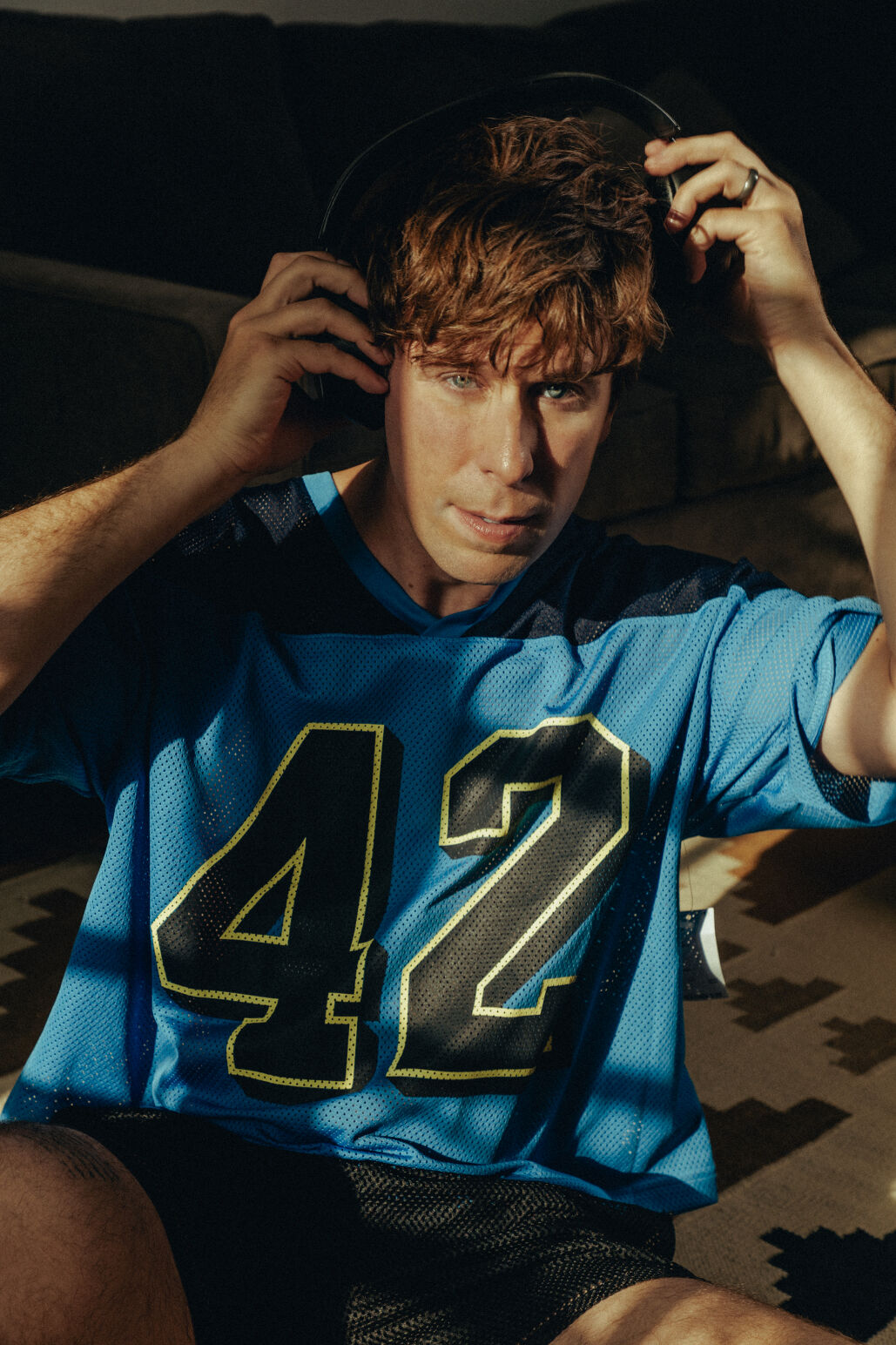
This year marks the 10th anniversary of The Bright Sessions which was your breakthrough into the fiction podcast space. What’s something you’d say you learned about yourself working on that series, and what does it mean to you a decade on?
The Bright Sessions taught me so much about empathy, about really tuning into someone else’s emotional reality, even when it’s messy or invisible from the outside. Playing Caleb, this teenager who feels everything so intensely, gave me a new appreciation for how a lot of us queer people grow up with that same emotional sensitivity. When you spend your adolescence contending with being different—hiding parts of yourself, shaping yourself to fit in—you get really good at reading rooms, anticipating reactions, and figuring out how people tick. It’s empathy born out of survival… and over time, it kind of turns into a superpower.
A decade later, I can see how that show also gave me language for my own gayness. I’m still floored by what Lauren Shippen and our cast created. It didn’t just launch my career; it plugged me into a whole community. I still get messages from listeners saying Caleb helped them come out or made them feel less alone, and honestly, that means everything. It’s why I keep telling queer stories. I know firsthand how much space they can open up for someone. Ten years later, I still feel so honored to have been part of something that gave people, including me, permission to connect, to feel, and to be proud.
Given the fact that you’ve done plenty of on-camera acting work as well, does it feel like acting for the audio medium is a different skillset? Or, might you say there are different tools & techniques when it comes to performing for different mediums? Why or why not?
Acting is acting, no matter the medium; it’s still both pretending and finding the truth, right? You’re still listening, still being present. But voice acting definitely uses a different toolkit. On camera, so much can be in a look or a tiny gesture, or just the way you hold yourself. In audio, all of that has to live in your voice. You’ve got to carry the same nuance and grounding without your face or body doing the heavy lifting. You’re still using them—they’re part of the process—but it’s filtered through this other mechanism that’s hard to describe. The best comparison I can think of is being aware of the camera and lights when you’re on set, but still staying locked into the scene. It’s like you shift into a gear that’s always running in the background to get things across.
What I love about audio, especially audio fiction, is how stripped down and intimate it feels. The listener is right there with you, probably wearing headphones, and it’s just the two of you in this little world. My parents used to check out old radio show cassette tapes from the library when I was a kid—Burns and Allen, Abbott & Costello—and I’d listen while falling asleep. I remember how close it all felt, picturing everything in my head in that space between being awake and asleep. Doing audio fiction now feels like a full-circle moment. It’s like I’ve found this modern extension of those old shows I loved, and I get to give someone else that same feeling.
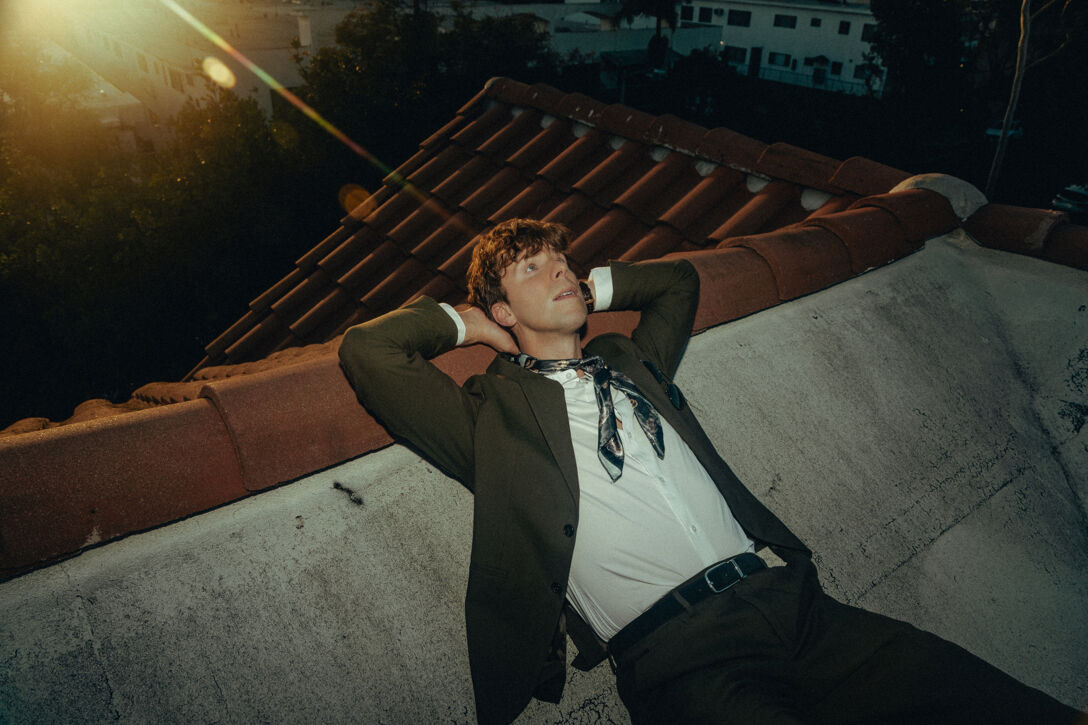
It largely goes unspoken, but it’s pretty cool that there are so many queer people in the podcasting space because, for many of us growing up, our voices—and “sounding” “gay”—were things we were conditioned to be ashamed of. Was this something you had to grow out of? When did you realize you have a powerful voice?
Oh yeah, absolutely. I spent years trying to make myself sound different: lower, straighter—whatever that’s supposed to mean. You’re taught so early that your voice, your mannerisms, even your enthusiasm for things can “give you away,” and when you’re young, that feels dangerous. Even years after I came out, I realized I was still carrying that. But slowly, my voice started to relax. It maybe lilts up more now. It dropped some of the armor I’d been holding onto.
It also made me wonder: Was this always my real voice? Or is it still shaped by all those years of monitoring and adjusting? I don’t know. I do know that I actually love my voice, how it can be both masculine and feminine, the freedom and possibility in that, but I still wonder who I’d be if I hadn’t spent my adolescence fencing myself in.
It wasn’t until I started doing voice work that I really started to unpack that old shame. Fiction podcasts became this space where my voice wasn’t just accepted, it was celebrated. I think I realized it was “powerful” when I saw how many listeners connected with it; not because I was trying to sound like anyone else, but because I was just being honest. That’s thanks in huge part to the writing and stories I was given by other queer creators. Now, I don’t want to sound like anything but myself.
Where’s one of the first spaces you can remember that made you feel a part of a queer community?
Does cruising the m4m section on Craigslist count? I’m kind of serious. I think the first real space where I felt connected to a queer community was online. I didn’t have any out queer friends growing up. Not in high school, not even in college. And it took me a long time to feel fully open in every part of my life.
Because I didn’t have that in-person queer circle, digital spaces became lifelines. Theater felt adjacent, like a safe space by association, but it was places like AIM chat rooms, hookup platforms back in the early 2000s, and then things like Instagram and Twitter (before the goose-stepping losers took over) where I really connected with queer people who felt like me. Fandoms, DMs, comment threads…those were the spaces that welcomed me and have been a constant in my life from the days of deleting history and cookies on the family computer to now.
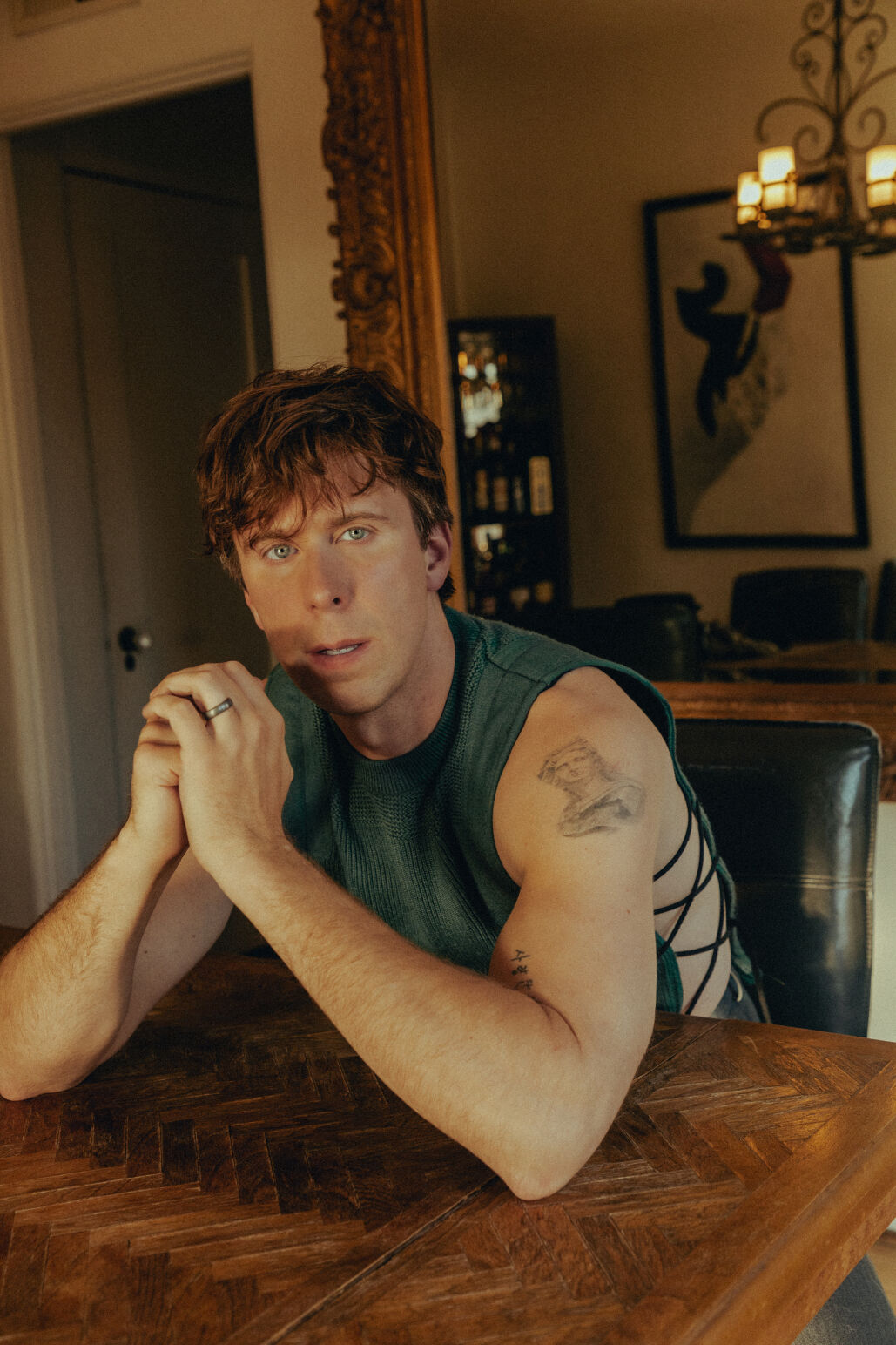
You most recently played a role in the Audible Original Hit Singles—what drew you to the role of “Matt,” and why do you think the series might appeal to queer listeners?
I was drawn to Matt because he’s the kind of character I’ve always wanted to play: Unserious, witty, attractive, messy, horny, mischievous, and somehow the lovable glue holding the friend group together. I’ve played the earnest, golden-boy type a lot (Caleb in The Bright Sessions is basically the blueprint), and that’s definitely a part of me. But Matt taps into something more grown-up… a side of me that’s probably closer to who I am now than people might expect.
Right before I got the audition, I had just finished watching this Korean BL called Light On Me, and there was this chaotic, charming character in the friend group that I absolutely loved. I remember turning to my husband and saying, “I want to play someone like that. I could totally do that.” And then Hit Singles came along.
What I love about the show is that it doesn’t treat queerness like a twist or a subplot; it’s central, but it’s not on a pedestal. It just… is. So many shows still throw in a token gay or couple, but this one (like a lot of the best fiction pods) reflects the reality I know: queer people tend to find each other. In this friend group, everyone is either queer or can totally hang.
I hope people check it out. It’s romantic, sexy, messy, vulnerable, hilarious, it’s got a killer soundtrack, and I have a crush on everyone in the cast: Evangeline Young, Nicholas Podany, Simone Policano, Julia Rehwald—you’re all dreamy and cool. The show leans into the full spectrum of millennial and Gen Z life in the city. I think queer listeners will hear themselves in it. I definitely did.
Though you get to play a “messy single” in that series, you just recently celebrated your sixth anniversary with your husband—congratulations! What’s one of the biggest lessons you’ve learned about yourself through your relationship?
Thank you! When I was a kid, gay marriage wasn’t legal. The idea of having a child felt impossible. Honestly, the thought of living a double life just so I could get the “white picket fence” thing felt like a completely rational option in my head. But as I came into myself and claimed more space in the world, I realized I could actually have those dreams—and I could shape them on my own terms, because I was already different.
Now I have a beautiful, remarkable, loving husband, and we have this incredible little boy who fills our life with laughs—and our heads with gray hairs. And we get to define what our family looks like; not based on what’s expected (my cis-het brothers across the aisle, I do feel for you), but based on who we are and how we want to move through this one life we’ve got.
What I’ve learned about myself through my husband and son is that I wouldn’t change being queer for anything. The kid who used to wish he wasn’t gay could never say that now. Because being queer means being transformative. You don’t have to accept the world’s default settings around relationships, gender, family and parenting, success… any of it. You can build something new. That’s the freedom I’ve found in my marriage and in fatherhood, and it’s a part of my life I love deeply.
And, in closing: Who is a queer or trans artist/performer/creator that you think is doing really cool work right now? Why are they someone we should all be paying attention to?
Robbie Hyne, for one. His show Moonburn is fantastic. It stars Anthony Keyvan, and I think Joshua Colley and Kevin McHale are in there too, and it’s just so good. He’s a newer creator in the audio space, and it’s been cool to see his passion and energy up close. Not to sound old, but he actually reminds me of when I was starting out; hungry, full of ideas, and determined to make something great. He’s way more ahead of the curve than I was, though. It’s exciting to see that new queer creators are still coming in, building on what’s been done, and evolving the medium to tell the stories they want to tell.
Another queer creator I have to shout out is James Kim. His work consistently pushes the medium forward. Vermont Ave is one of my favorite fiction podcast episodes ever… it’s so simple and raw. He also made Moonface with Joel Kim Booster, and just put out You Feeling This 2. His storytelling is immersive and intimate, with performances that feel completely lived-in. James is raising the bar not just for fiction podcasts, but for queer and Asian representation in audio. The guy is super respected in the space. You gotta get on his work.
Hit Singles is now available through Audible. The entire archive of The Bright Sessions is currently streamable right here.
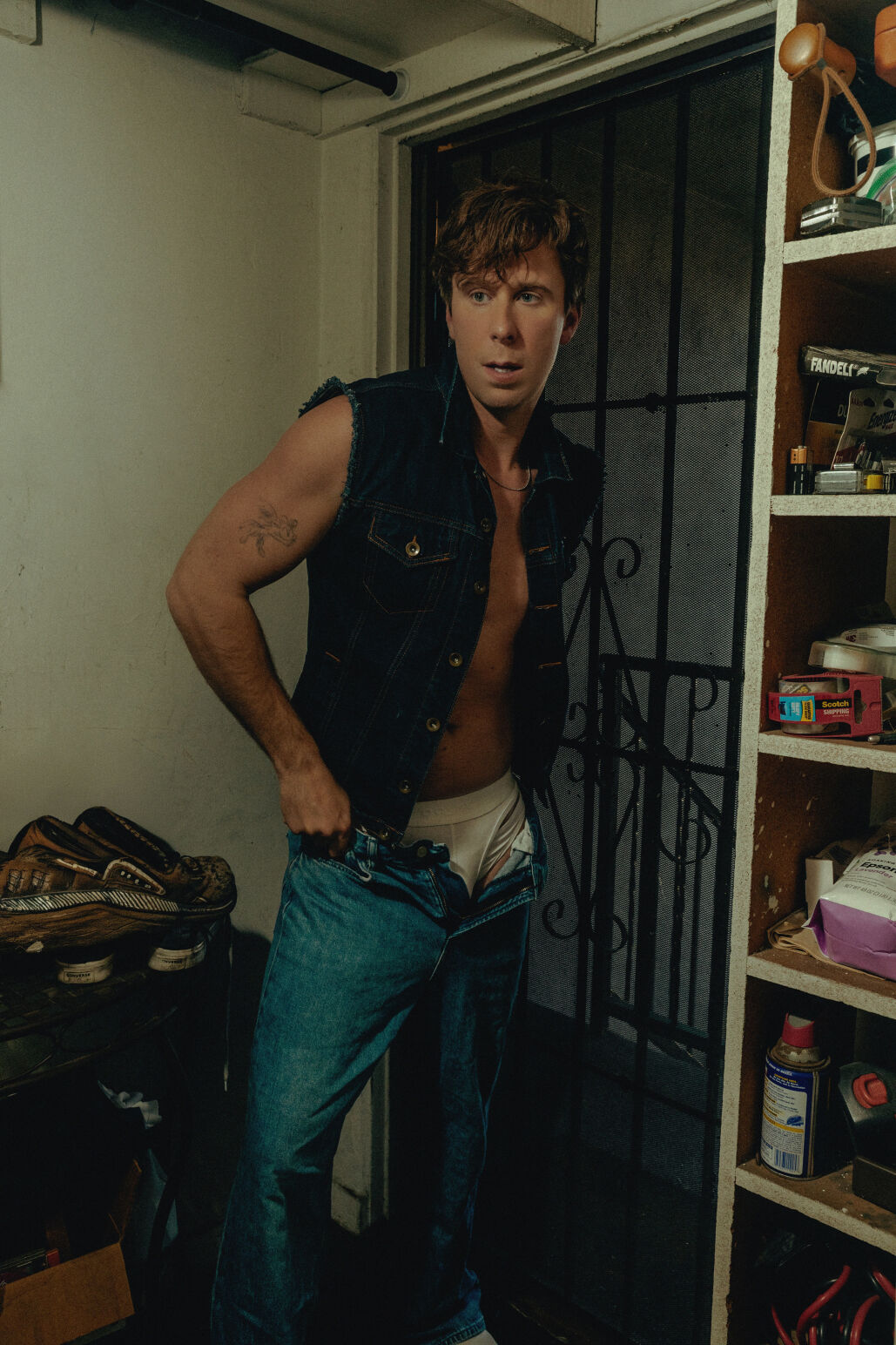
Sign up for the Queerty newsletter to stay on top of the hottest stories in LGBTQ+ entertainment, politics, and culture.

 Mark
Mark 





